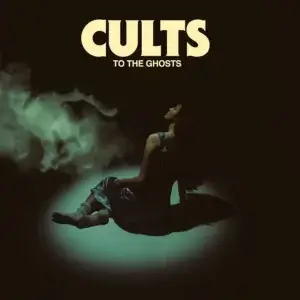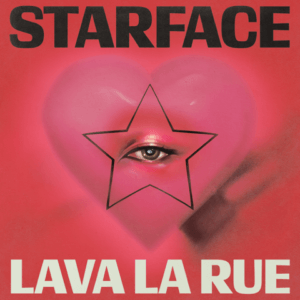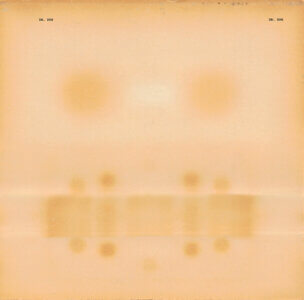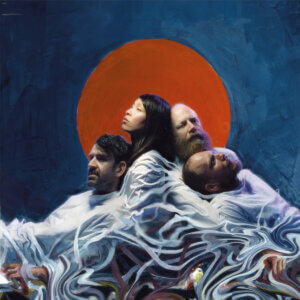Little Dragon Are Maintaining An Air of Surprise

On the opening track of Little Dragon’s dexterous seventh studio record, Yukimi Nagano welcomes audiences by saying, “We wrote a song for you to hear.” The song simultaneously conjures a mellow and infectious atmosphere. There’s an alluring duality to the composition which makes you curious for what’s waiting around the corner. Slugs of Love manages to maintain that air of surprise throughout its duration. Colorful, sophisticated, melancholic and exuberant; Slugs of Love is yet another brilliantly kaleidoscopic turn from the Swedish quartet.
Northern Transmissions caught up with Little Dragon’s bassist Fredrik Wallin, who was sitting in a car on a ferry when we spoke, about the band’s incredible career, their approach to collaboration and what their latest work represents to him.
Northern Transmissions: You formed in 1996, I know it’s still 3 years away from 30 years of Little Dragon, but that’s quite a significant milestone for the band. I suppose, to begin, could you describe what it has meant to you to be in Little Dragon and how it has shaped who you are as individuals and artists?
Fredrik Wallin: Yeah, that’s completely correct. We met in ‘96; me, Eric, and Yukimi, when we
were in high school together. But then we formed more officially as Little Dragon, you could say, in 2005.
I think it’s definitely significantly shaped all of us. You’re growing up together and developing in a musical sense together and also developing as human beings with all of life’s happenings. It’s been really formative and meaningful, you know, going from the struggles in the beginning of trying to make a living out of it; sharing the stresses and the joys that come with that. And also traveling together and getting to see so many different places and cultures and play for an audience. It’s brought a lot of great times.
NT: Throughout your career, you know there’s never more than a 3 year gap between albums, there’s a great discipline to how you work and also how you always keep things interesting both visually (with your album artwork & music videos) and musically. How would you describe Little Dragon’s work ethic and general ethos towards making new music?
Fredrik: I think you kind of said it yourself, I think we have a strong work ethic of showing up in the studio and not waiting around for inspiration, too much. We’re also always trying to make stuff that we are intrigued and interested in, constantly.
We’ve always had that strive to create something that excites us. That feels fresh and new. And of course, sometimes there’s a little bit of celebratory… or taking something that you want to recreate that you like, but always putting a little spin on it. Make it kind of new and fresh.
But I mean, sometimes I feel like maybe it’s good to take a break, as well. We’ve always had a nine-to-five office work thing which has been very meaningful and gives a lot to the overall band structure.
NT: Slugs of Love is your 7th studio album, and I was interested to read that as a band, you worked on different ways of communicating and collaborating and dissolving patterns and making new ones. Can you tell me about some of the ways Little Dragon approached Slugs of Love differently? And what were some of the challenges and moments of enlightenment that you experienced during that time?
Fredrik: I think one of them, or one constant issue has always been the thing of being four individuals and, you know, naturally everyone has their ego kind of thing when figuring out what’s the right way to go and what should be the leading force when writing. Of course, we have a lot of debates, but this time we talked about, like in improvisational theater, how the only way forward is to say “yes”, you know. Making the “yes” be stronger than the “no”. In that way, there’s probably been less ego in the music we’ve worked on with that guidance.
NT: I really enjoyed how this is like an album of 2 parts – there’s the hugely energetic feel with songs like “Frisco” while others are much darker like “Lily’s Call”, which is so fascinating and unsettling and really stands out for its different mood. There’s also an intimacy created from the way the album opens and also at the same time, there’s so much breadth to the arrangements which is really transportative. Tell me about how you went about building the sonic world of Slugs of Love.
Fredrik: I’m trying to think, because it’s always been like an organic process for us in the studio. And I think we all have really strong ideals of what we are. I think we have always been a little bit minimalistically drawn to like the sound-worlds that are not too fully arranged.
NT: Perhaps, we can talk about some of the different sonic influences that may have informed Slugs of Love. I could sense quite a broad tonal palette from a 90s sensibility to on ‘Tumbling Dice’ and ‘Stay’. And then you have ‘Disco Dangerous’ which has a bit of a Minnie Riperton and Prince feel to it. While, something about ‘Kenneth’ made me think of early 2000s-era Beck. Did you come together in the studio with different sonic reference points that you wanted to explore? There’s such a great variety of styles and even eras working cohesively together on this album.
Fredrik: Yeah, I think we do. But it’s rarely spoken about directly. I think sometimes it happens naturally, or you bring up something that’s inspired you and then you try to lead it towards that style, somehow. And I think also, with some ideas, people get different associations and references for the songs. Like with “Slugs of Love”, on some level, I think Erik [Boden, Little Dragon’s drummer] felt like it was reminding him of a Devo song. So we wanted to add that kind of element to it.
NT: Collaboration and welcoming really interesting artists to feature on your songs has always been such an important element to Little Dragon’s music. On this occasion you have JID and Damon Albarn, who has, of course, been someone the band has had a close relationship with for many years. What is it about collaborating with other artists that draws you in? And how do you decide who to ask to feature on a song?
Fredrik: This time around it happened very naturally, like with having a relationship with Damon from touring with them. Also with JID, there was a conversation on Instagram where we shared a mutual appreciation of each other’s music.
I mean, being four members in a band, there’s constant collaboration. But it’s always interesting, since we know each other so well and how we work and have similar ideals. It’s interesting to bring in another person, like Damon, for example, but what he brought to the song was very different than having something strictly in our style or bringing something that we maybe wouldn’t even think of trying? It’s a beautiful way of opening up and to blow-up creativity in the process which is so fun.
NT: Do you have anyone in mind that you’d love to collaborate with in the future?
Fredrik: Yeah, definitely. There’s a lot of people. We actually looked into collaborating with Dolly Parton, but she wasn’t available.
NT: Oh wow, that would be amazing!
Fredrik: Yeah, but sometimes you can be afraid of collaborating too much because you don’t want it to become diluted by adding a bunch of names, you know, on every song because you still want to have your own character or identity, I guess, with the songs.
NT: Thematically, there are traces of processing difficult life experiences and the learning from those instances in the lyrics. There’s “Chasing a dream always comes with a price” and “No more regrets for the rest of my life” on “Frisco” and then lines like, “I never want to fall in love” (“Disco Dangerous”) and ‘We haven’t connected much lately” on “Stay”. I know Yukimi primarily writes the lyrics, but can you tell me about what this album represents to you, lyrically?
Fredrik: Yeah, it’s mainly Yukimi writing most of the lyrics, sometimes we bounce stuff back and forth. But I think these are very life affirming set of songs and themes. Sometimes, it’s to do with mortality on certain songs. But, it’s funny, like a lot of the songs we don’t even know what they’re about, but you create your own kind of story or your own meaning for them, which is really interesting.
Latest Reviews
Tracks
Advertisement
Looking for something new to listen to?
Sign up to our all-new newsletter for top-notch reviews, news, videos and playlists.









